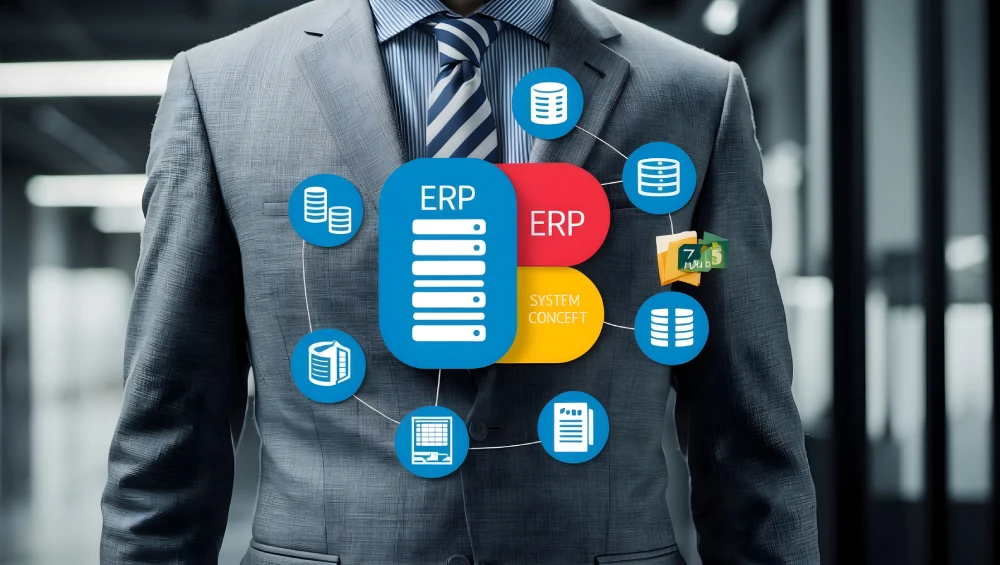The Role of a Managed Service Provider in ERP Systems
- Highbar Technocrat
- Blogs
- December 25, 2023
Connect With Us
The Role of a Managed Service Provider in ERP Systems
- Highbar Technocrat
- Blogs
- December 25, 2023
Connect With Us

Enterprise Resource Planning (ERP) systems have emerged as powerful tools to streamline operations, enhance efficiency, and drive growth. However, the successful implementation and ongoing management of ERP systems can be complex and resource-intensive tasks. This is where a Managed Service Provider (MSP) specializing in ERP systems plays a pivotal role.

Understanding ERP Systems
Before getting into detail about the role of MSPs, let’s first understand the functioning of ERP systems. ERP is a comprehensive software solution designed to integrate and streamline various business processes across an organization. These processes may include finance, human resources, supply chain management, customer relationship management, and more.
The primary goal of an ERP system is to provide a centralized platform where data flows seamlessly between different departments, enabling real-time decision-making, reducing manual efforts, and encouraging collaboration. ERP systems are often customized to meet the specific needs of a business, aligning with its unique workflows and objectives.
The ERP Implementation Challenge
While the potential benefits of ERP systems are vast, the journey to implementing and maintaining them is not without challenges. Many businesses face obstacles during the initial implementation phase, such as:
- Complexity: ERP systems are intricate, and configuring them to align with specific business processes can be a complex task.
- Resource Intensity: The implementation process often demands a significant allocation of time, money, and skilled personnel.
- Training and Change Management: Introducing an ERP system often requires employees to adapt to new ways of working. Proper training and change management are crucial for successful adoption.
- Integration Issues: Ensuring seamless integration with existing systems and applications is essential to maximizing the benefits of an ERP system.
The Role of Managed Service Providers in ERP Systems
This is where MSPs specializing in ERP systems come into play. An MSP offers a comprehensive suite of services to assist businesses in the planning, deployment, and ongoing management of their ERP systems.
Strategic Planning and Consultation
An experienced MSP begins by understanding the unique needs and goals of a business. Through in-depth consultation, they help define the scope of the ERP implementation, ensuring that the chosen system aligns with the organization’s objectives. This strategic planning phase is critical to the long-term success of the ERP solution.
Customization and Implementation
Once the strategy is in place, the MSP works on customizing the ERP system to suit the specific workflows and processes of the business. They ensure that the solution integrates seamlessly with existing systems and addresses the unique challenges faced by the organization. This includes configuring modules, setting up user roles, and establishing data migration processes.
Training and Change Management
An often-overlooked aspect of ERP implementation is the human factor. MSPs recognize the importance of training employees on the new system and managing the changes it introduces. This involves creating tailored training programs to familiarize users with the ERP interface and functionality, fostering a smooth transition.
Continuous Monitoring and Optimization
Once the ERP system is up and running, an MSP’s role extends to continuous monitoring and optimization. This involves proactive management of the system, addressing issues as they arise, and implementing updates and patches to ensure the solution remains secure and efficient. Regular performance assessments help identify areas for improvement and optimization.
Scalability and Flexibility
Businesses are dynamic entities, and their requirements evolve over time. MSPs understand this and design ERP systems with scalability and flexibility in mind. As a business grows or pivots, the MSP ensures that the ERP system can adapt to new demands, integrating additional functionalities or modules as needed.
Data Security and Compliance
Ensuring the security of sensitive business data is a top priority for any organization. MSPs specializing in ERP systems implement robust security measures, including data encryption, access controls, and regular security audits. Moreover, they stay abreast of industry regulations and compliance standards, ensuring that the ERP system aligns with legal requirements.
Cost Efficiency
Engaging an MSP for ERP management can lead to significant cost savings. Instead of hiring and maintaining an in-house IT team dedicated to ERP, businesses can leverage the expertise of the MSP on a more cost-effective basis. This allows organizations to allocate resources strategically, focusing on core business functions.
24/7 Support and Troubleshooting
Issues with ERP systems can disrupt business operations. MSPs provide round-the-clock support, ensuring that any problems are addressed promptly. This includes troubleshooting technical issues, resolving user queries, and offering guidance on best practices.

The Future of ERP Management: Trends and Innovations
As technology continues to evolve, so does the landscape of ERP systems and their management. Several trends and innovations are shaping the future of ERP management:
- Cloud-Based ERP Systems: The shift towards cloud-based ERP systems allows businesses to access their data and applications from anywhere, fostering greater flexibility and scalability.
- Artificial Intelligence (AI) Integration: AI is increasingly being incorporated into ERP systems, enabling intelligent automation, predictive analytics, and enhanced decision-making capabilities.
- Blockchain for Data Security: Blockchain technology is being explored to enhance the security and transparency of data within ERP systems, reducing the risk of unauthorized access or tampering.
- Enhanced User Experience (UX): Future ERP systems prioritize a user-friendly interface and seamless user experience, making them more accessible to individuals across various roles within an organization.
- Internet of Things (IoT) Integration: The integration of IoT devices with ERP systems allows for real-time monitoring of physical assets, optimizing processes such as inventory management and supply chain tracking.
Conclusion
In the progressive world of business technology, the role of Managed Service Providers in ERP systems is indispensable. Their expertise not only facilitates the smooth implementation of ERP solutions but also ensures ongoing management, optimization, and adaptability to meet the dynamic needs of businesses. By partnering with an MSP specializing in ERP systems, organizations can harness the full potential of these powerful tools without the burden of intensive resource allocation.
As we look to the future, the synergy between ERP systems and MSPs will continue to empower businesses, driving efficiency, innovation, and sustainable growth.




